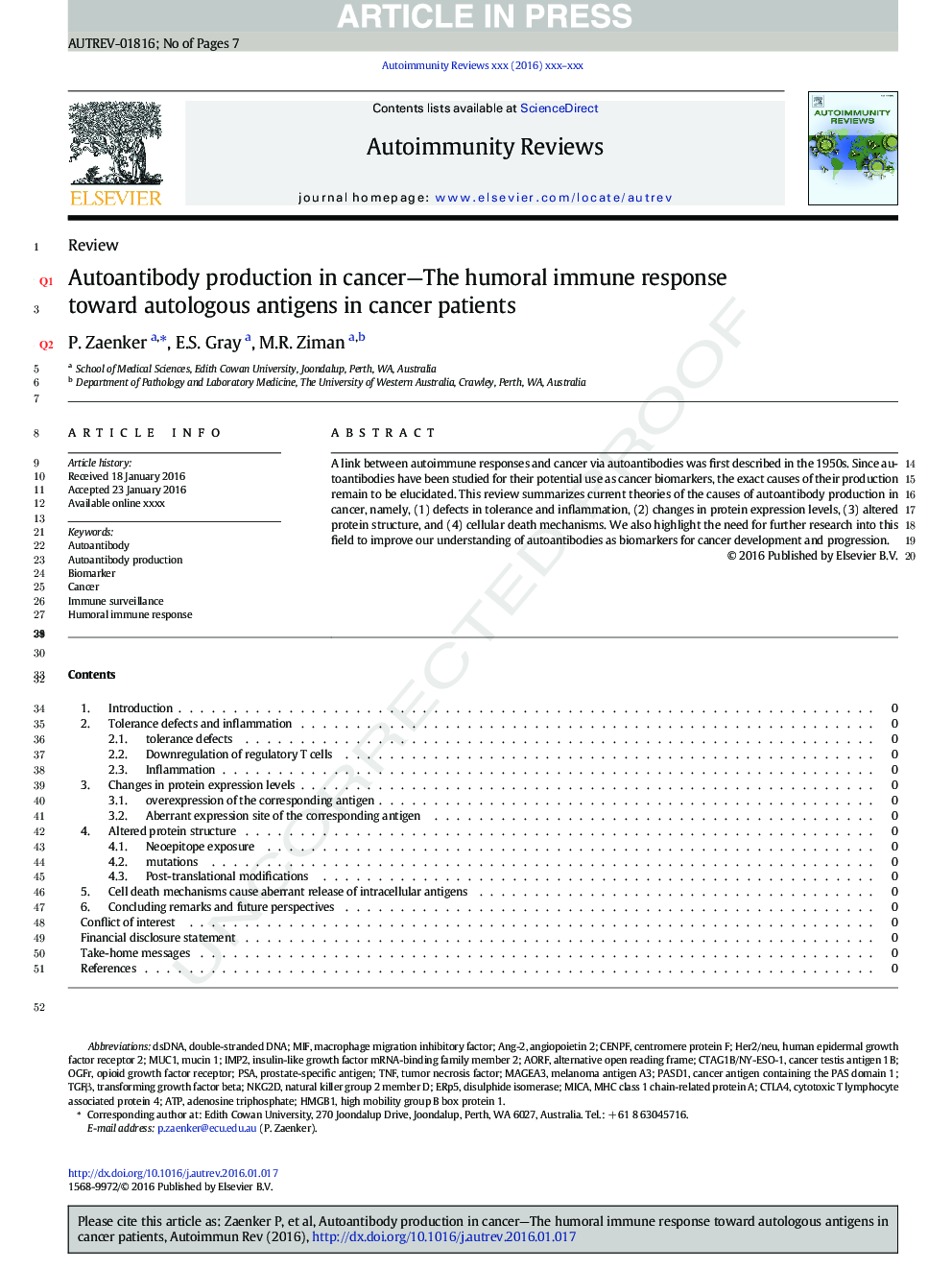| Article ID | Journal | Published Year | Pages | File Type |
|---|---|---|---|---|
| 6114398 | Autoimmunity Reviews | 2016 | 7 Pages |
Abstract
A link between autoimmune responses and cancer via autoantibodies was first described in the 1950s. Since, autoantibodies have been studied for their potential use as cancer biomarkers, however the exact causes of their production remain to be elucidated. This review summarizes current theories of the causes of autoantibody production in cancer, namely: 1) defects in tolerance and inflammation, 2) changes in protein expression levels, 3) altered protein structure, and 4) cellular death mechanisms. We also highlight the need for further research into this field to improve our understanding of autoantibodies as biomarkers for cancer development and progression.
Keywords
centromere protein FTNFnatural killer group 2 member DNKG2DMUC1CTLA4OGFrHMGB1TGFβdsDNAPSAdouble-stranded DNAAng-2Adenosine TriphosphateATPangiopoietin 2AutoantibodyHER2/neuBiomarkerTransforming Growth Factor BetaCancerMIFMacrophage migration inhibitory factortumor necrosis factorMucin 1MicaImmune surveillanceprostate-specific antigenHumoral immune responseOpioid growth factor receptorHuman epidermal growth factor receptor 2
Related Topics
Life Sciences
Immunology and Microbiology
Immunology
Authors
P. Zaenker, E.S. Gray, M.R. Ziman,
